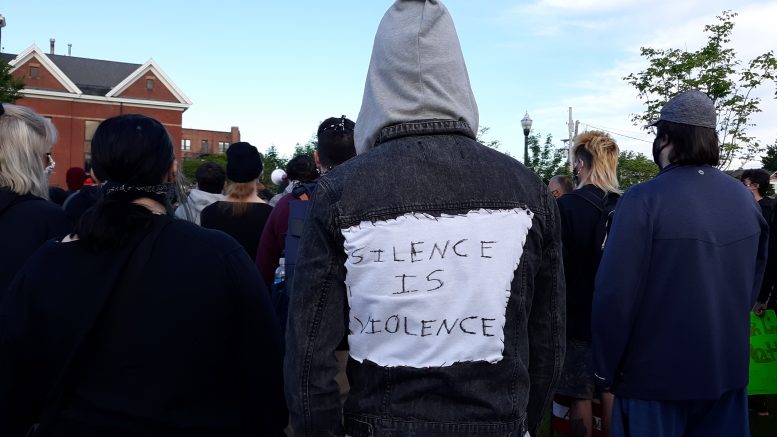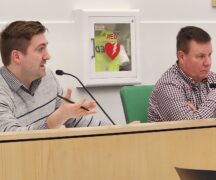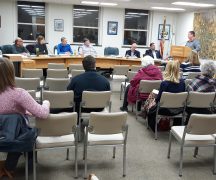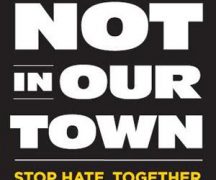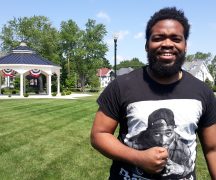By JAN LARSON McLAUGHLIN
BG Independent News
White people in Bowling Green are being asked to bring about changes to make the community more welcoming and safe for people of color.
In the coming months, local residents will be asked to get involved – by joining in a community reads project, viewing a movie, and attending some virtual “listen and learn” events. White people will be asked to engage in uncomfortable discussions.
Throughout Bowling Green, groups of people are working for change.
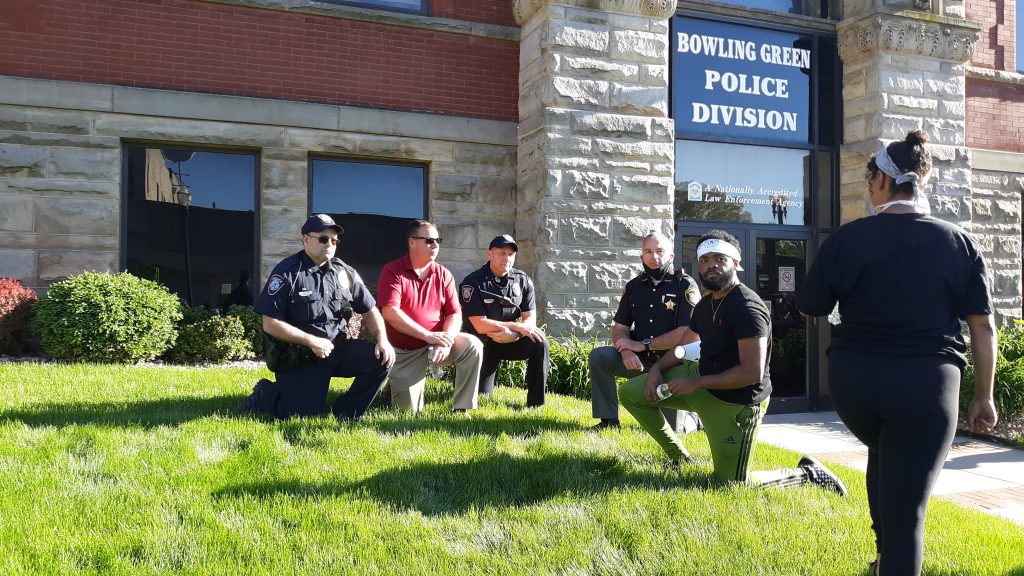
Police division is listening
Bowling Green Police Division has created the position of a liaison for people of color. Sgt. Adam Skaff has volunteered for the position, and introduced himself recently during a meeting of Not In Our Town Bowling Green.
Mayor Mike Aspacher has cautioned that there is danger in projecting problems from other communities onto Bowling Green. He spoke of the Bowling Green Police Division’s willingness to participate in creating more racial equity and to being transparent.
“They were being painted with a brush that they did not deserve,” Aspacher said. “Let’s look at us, and see what we can do to be better in Bowling Green.”
But Anthony King, who organized the peaceful protest in Bowling Green earlier this summer, said the problems seen in other communities also exist here in Bowling Green.
“These types of things are here. These types of feelings are here,” King said during a meeting of the city’s Human Relations Commission earlier this month.
At the same meeting, Bowling Green Police Major Justin White said the police division has an in-depth complaint process – but people need to report problems so the division can investigate.
“In order for us to get better, people have to come to us with specifics,” White said. “If people don’t come forward, we can’t address the situation.”
But King said some people of color hesitate to report complaints to police.
“A lot of the African American community is afraid to come to the police,” he said. “That’s a very intimidating process for a lot of African Americans.”
White described the variety of ways complaints can be filed – online, over the phone, and anonymous. He also noted BGPD’s CALEA accreditation, which is held by just 800 or so of the nation’s 18,000 police departments.
When a complaint is filed about police conduct, it goes through several steps. “We do investigate,” White said.
“How can we solve a problem if people don’t come forward,” White said.
But King repeated his concerns.
“If people are afraid of the police, they are not going to go to the police,” he said.
The police division in Bowling Green has civilian oversight, explained Assistant Municipal Administrator Joe Fawcett. Complaints about police conduct can be reported to the mayor or municipal administrator if someone has concerns about going directly to the police with the complaint.
However, King said that also poses problems.
“People are afraid of the police, and they are also afraid of power,” he said. “They have legitimate reasons for that fear.”
Emily Dunipace, a member of Not In Our Town BG and the city’s Human Relations Commission, talked about some organizations using outside groups of community members to review complaints.
“People of color have felt for a long time they aren’t listened to,” she said.
White said BGPD is listening.
“We want to hear. I don’t want officers out there representing our community and being discriminatory,” White said. “We want to assure people they are going to be investigated.”
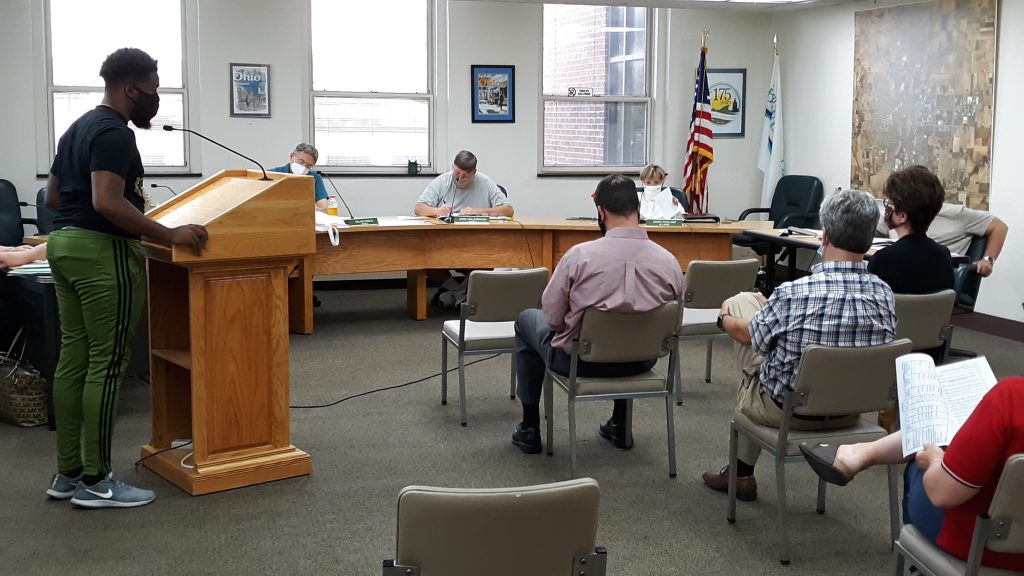
City Council takes steps for racial equity
In July, Bowling Green City Council unanimously passed racial equity resolution, which states the following:
- City Council pledges to listen and learn, in order to take meaningful action on racial injustice to ensure that people of color are treated equally in every encounter with the city and in receipt of city services.
- City Council seeks to increase diversity present throughout all city departments and divisions.
- City Council pledges to ensure that there are transparent processes across all city government for investigating employee misconduct and employing progressive discipline.
- An existing police officer will be assigned the duty of liaison to communities of color. Just as the police division assigns liaisons to school-age children and other community groups, outreach to communities of color should be formalized.
- The Human Relations Commission will create a series of city-sponsored “Listen & Learn” events, with the goal of educating city staff and the public on the history of racism and furthering the discussion on these issues within our community.
The resolution states that institutional and structural racism has plagued this country since its founding, and that there is a cry across America for public officials to take bold action. The wording acknowledges that Bowling Green is not immune from systematic racism.
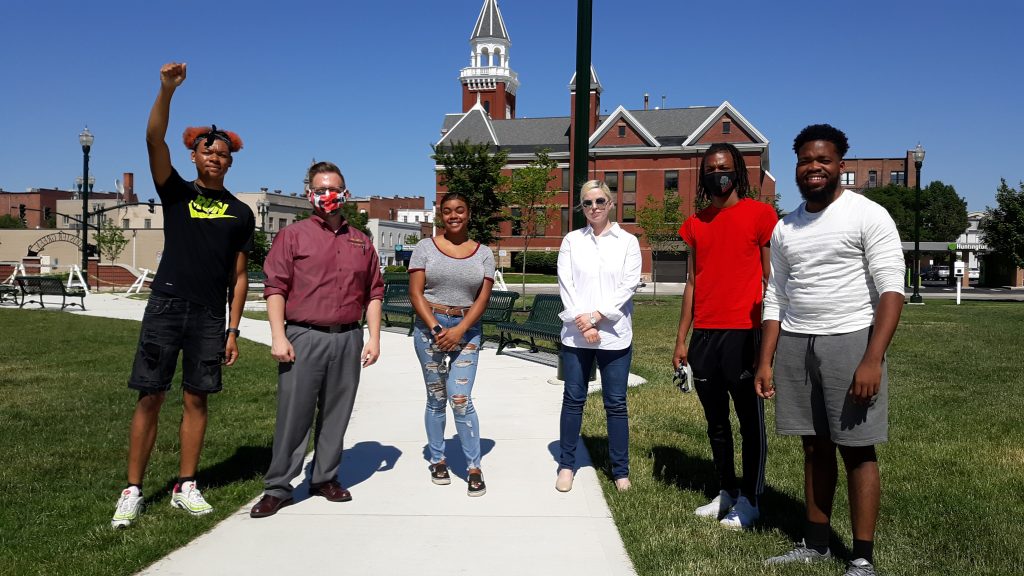
BRAVE working for change
The newly formed organization called BRAVE – which stands for Black Rights, Activism, Visibility and Equity – is looking to make more Black voices heard in Bowling Green. This includes efforts such as:
- Working with public officials on such issues as the racial equity resolution adopted by City Council.
- Supporting Black-owned businesses in Bowling Green, by helping them start and succeed.
- Promoting curriculums of Black inclusion at local schools and churches.
- Supporting cultural events where people of color feel welcome.
- Helping people register to vote, so they are part of the process.
- Creating relationships and resources in the community.
“In Bowling Green, like in many small towns, there’s a culture gap,” Chris Douglas a member of BRAVE, said recently when speaking to the Bowling Green Kiwanis Club.
“We want the next generation to come up and feel more comfortable,” Douglas said.
“I love this city. This city is amazing,” Elijah McKnight, a member of BRAVE, said during the presentation to the Kiwanis Club.
“Racism does exist in our community,” McKnight said, noting that people of color face discrimination and racial epithets on a daily basis.
BRAVE recently opened up an office in a space donated to the organization.
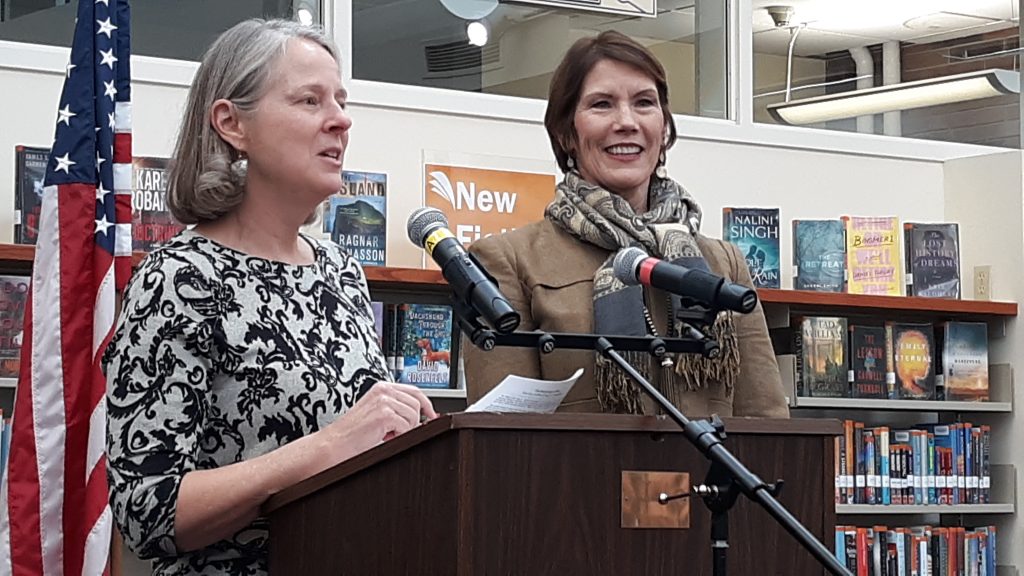
White people have a responsibility
It may be painful to hear, but the foundation of this nation is inherently racist, said Atonn Smeltzer, a member of BRAVE. It didn’t stop with slavery, but continued through Jim Crow laws, through redlining, and through the “school to prison pipeline,” he said.
“White privilege doesn’t mean your life is easy,” Smeltzer said. “It’s about your life not being harder because of the color of your skin.”
Whites who want to help end racism have to be more than not racist – they must be anti-racist, Smeltzer said.
“It can’t be one-sided,” he said. “Bridges have to be built on both sides.”
Bowling Green’s population is 92% white, and it’s up to those people to make changes, Dunipace said.
“It’s going to take all of us to continue to fight the hate. Racism is here in Bowling Green,” Dunipace said. “If we’re honest with ourselves, if we were born in the U.S. as a white person, we really were taught racism.”
“We need to be having these conversations, so we can be the safe, welcoming, inclusive community we want to live in,” Dunipace said. “People are ready to change. People are ready to move.”
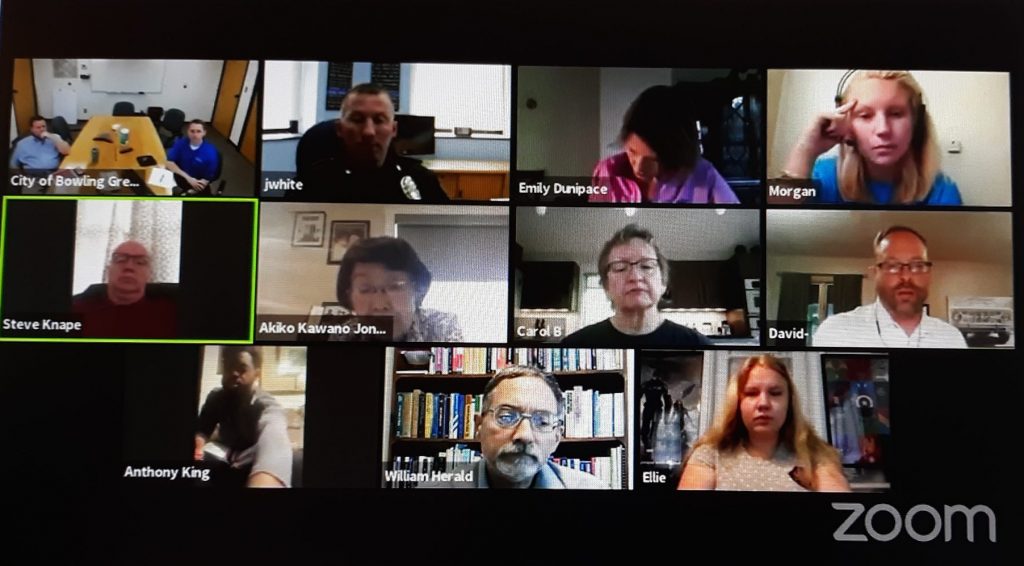
First step is education – Read, watch, listen and discuss
Before positive change can occur, white people in Bowling Green first need to educate themselves. Two organizations – Not In Our Town and the city’s Human Relations Commission – are proposing a community reads program, a movie night, and community conversations.
King, a new member of the city’s Human Relations Commission, urged the organization to not squander this moment. He suggested a series of “listen and learn” events, and the creation of a task force to address racial disparities.
“We have an opportunity to show what we can do as a group,” King recently said to the Human Relations Commission.
King suggested a movie night of “Thirteenth,” a documentary showing American history through the lens of Black people.
Not In Our Town has been approached by a BGSU faculty member about a community reads project using the book “So You Want to Talk About Race.”
“We really, truly need to be working on this issue together,” Dunipace said. “Each one of us is going to have to take our own personal journey in this.”
“We have to have these conversations. They are painful and they are uncomfortable,” Dunipace said.
“But I think it’s important to keep pushing forward,” King said. “This is a good fight.”
Aspacher supported community efforts to learn.
“I’m all for these types of community discussions,” the mayor said. “I’m committed to our community having these conversations.”
Dunipace reminded that while white people need to look to Black people as guides, the work must be done by white people.
“It’s not people of color who need to solve this problem. White people need to solve this problem,” Dunipace said.
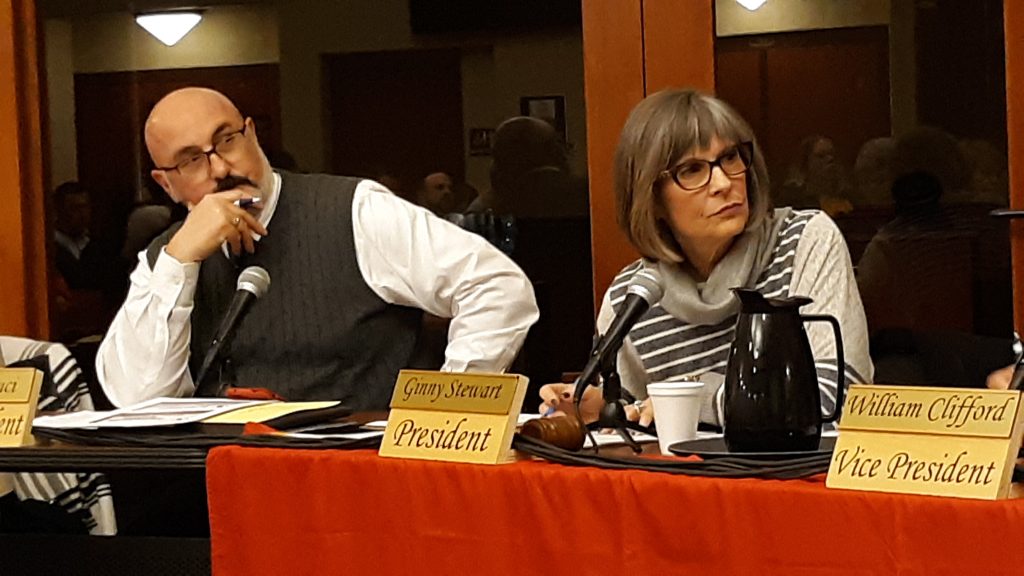
BG school district takes a stand
The Bowling Green City Schools Board of Education and Superintendent Francis Scruci adopted a statement regarding racial injustice earlier this summer. The statement reads:
“In the wake of the recent murders of George Floyd, Breonna Tayler, Ahmaud Arbery and too many others, and a history of injustice shown to the Black Community, it is of the utmost importance for the Bowling Green City School District and the Board of Education to speak out against the injustice and inequality that exists.
“While words alone are insufficient, know that we stand with you. We will listen and seek to understand, we will walk with you to fight the fight, and we will do better to speak out against the injustices and inequality that plague our citizens of color.
“We are committee to the continued fight for civil rights and to dismantling racist institutions and structures. We are dedicated to do the necessary work to change these unjust systems that harm, divide, and gravely impact the most vulnerable among us.
“We pledge to open ourselves to the stories of all groups and individuals, who, like Black people have been impacted by systemic bias.
“For change to occur we must bring this call for action to our homes, our schools, our places of work, and our community at large.
“As a school district we are committed to listening and learning to ensure that we are working more diligently toward fostering an inclusive environment free from all bias and bigotry.
“So, let us use our voices and our actions to show compassion and love to our fellow human beings.
“We can and must do better, as a school district, community and country. Please join us as we move this conversation forward.”

